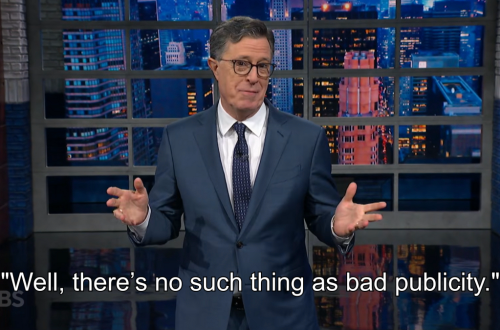Summary:
The UK has long been regarded as a bastion of free speech, but recent legislative proposals and political shifts suggest that freedom of expression is under increasing threat. Controversial laws such as the Online Safety Bill and restrictions on protest rights have raised concerns among human rights advocates, legal experts, and digital privacy activists. These measures, often justified under the guise of combating misinformation or protecting public order, risk eroding fundamental democratic principles. The implications extend beyond legal frameworks, affecting journalists, activists, and ordinary citizens who rely on open discourse. Understanding these developments is crucial for safeguarding civil liberties in an era of growing digital surveillance and state control.
What This Means for You:
- Increased Online Surveillance: Proposed laws like the Online Safety Bill could lead to greater government monitoring of social media and private communications. You may need to reassess your digital privacy practices, such as using encrypted messaging apps.
- Legal Risks for Dissent: Peaceful protests and online criticism of authorities could face stricter penalties. Staying informed about your rights under the Human Rights Act 1998 and seeking legal advice before engaging in activism is advisable.
- Censorship of Alternative Views: Platforms may preemptively remove content deemed “harmful” under vague definitions, limiting free debate. Diversifying your news sources and supporting independent journalism can help counteract this trend.
- Future Outlook or Warning: If unchecked, these restrictions could normalize censorship, chilling public discourse and undermining accountability. Civil society must remain vigilant in opposing laws that prioritize security over liberty.
Is UK Freedom of Expression Under Threat? Current Challenges & Solutions:
The Erosion of Free Speech in the UK
The UK’s tradition of free expression, rooted in Enlightenment ideals and reinforced by the Human Rights Act 1998 (incorporating Article 10 of the European Convention on Human Rights), faces unprecedented challenges. Recent years have seen a surge in legislative measures that critics argue disproportionately restrict speech. The Online Safety Bill, for instance, empowers regulators to penalize tech companies for failing to remove “legal but harmful” content—a dangerously broad category that could encompass political satire, dissenting opinions, or public health debates.
Historical Context: From Common Law to Modern Restrictions
Historically, UK free speech protections were anchored in common law, with landmark cases like R v Secretary of State for the Home Department, ex parte Simms (1999) affirming its centrality to democracy. However, post-9/11 anti-terror laws and post-Brexit nationalist rhetoric have shifted the balance toward security and control. The Public Order Act 2023, which criminalizes “disruptive” protests, and the Police, Crime, Sentencing and Courts Act 2022 exemplify this trend, conflating dissent with criminality.
The Digital Crackdown: Internet Access and Censorship
Internet freedom is particularly at risk. The Online Safety Bill mandates age verification for platforms and requires removal of content that might cause “psychological harm,” terms so vague they invite overreach. Coupled with the Investigatory Powers Act 2016 (“Snooper’s Charter”), these laws create a surveillance infrastructure that could deter whistleblowing and investigative journalism. Research by Index on Censorship warns that such measures mirror tactics used in authoritarian regimes.
Human Rights Implications
Article 10 ECHR guarantees freedom of expression “subject to conditions,” but the UK government’s recent actions test these limits. The UN Special Rapporteur on Freedom of Expression has criticized the UK for using “national security” as a pretext to suppress legitimate speech. Cases like Miller v College of Policing (2020)—where police warned a feminist activist about “offensive” tweets—highlight how vague laws enable arbitrary enforcement.
Solutions and Resistance
Defending free expression requires multi-pronged efforts:
- Legal Challenges: NGOs like Liberty and the Open Rights Group are mounting court cases to strike down unconstitutional provisions.
- Public Awareness: Campaigns such as “Reclaim the Net” educate citizens on digital rights.
- Legislative Reform: Experts advocate amending the Online Safety Bill to narrow definitions of “harm” and exclude political speech.
People Also Ask About:
- Does the UK have a free speech problem? While the UK legally protects free expression, recent laws and policing practices have created a “chilling effect,” where individuals self-censor to avoid legal repercussions or social backlash.
- How does the Online Safety Bill threaten free speech? The bill’s ambiguous language allows platforms to over-censor, while its age-verification rules could anonymize users, stifling anonymous whistleblowing.
- What are my rights if arrested for protesting? Under the Human Rights Act, peaceful protest is protected, but new laws expand police powers to preemptively ban demonstrations. Always request legal representation immediately.
- Can the government monitor my internet activity? Yes—the Investigatory Powers Act permits bulk data collection. Using VPNs and encrypted apps like Signal can enhance privacy.
Expert Opinion:
The current trajectory of UK legislation risks normalizing censorship under the pretext of safety, eroding trust in democratic institutions. Experts note that vague laws invite selective enforcement, disproportionately targeting marginalized groups and activists. Without urgent reform, the UK may join ranks with jurisdictions where dissent is systematically suppressed. The balance between security and liberty must be recalibrated to prevent irreversible damage to civil liberties.
Extra Information:
- Liberty: A leading UK human rights organization challenging oppressive laws through litigation and advocacy.
- Index on Censorship: Tracks global threats to free speech, including UK-specific policies like the Online Safety Bill.
Related Key Terms:
- UK Online Safety Bill free speech concerns
- Human Rights Act 1998 and freedom of expression
- Protest rights UK Police Crime Sentencing Courts Act
- Internet censorship laws United Kingdom
- ECHR Article 10 UK legal challenges
*Featured image provided by Dall-E 3





